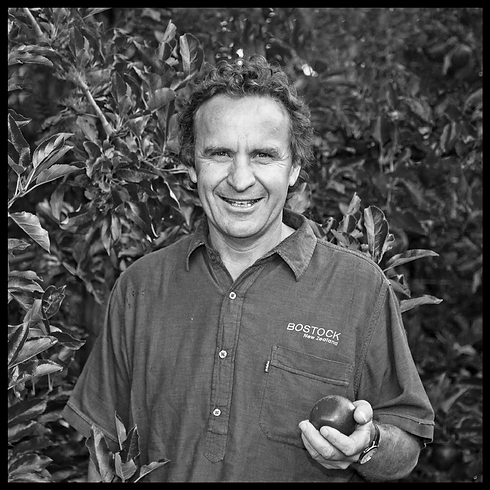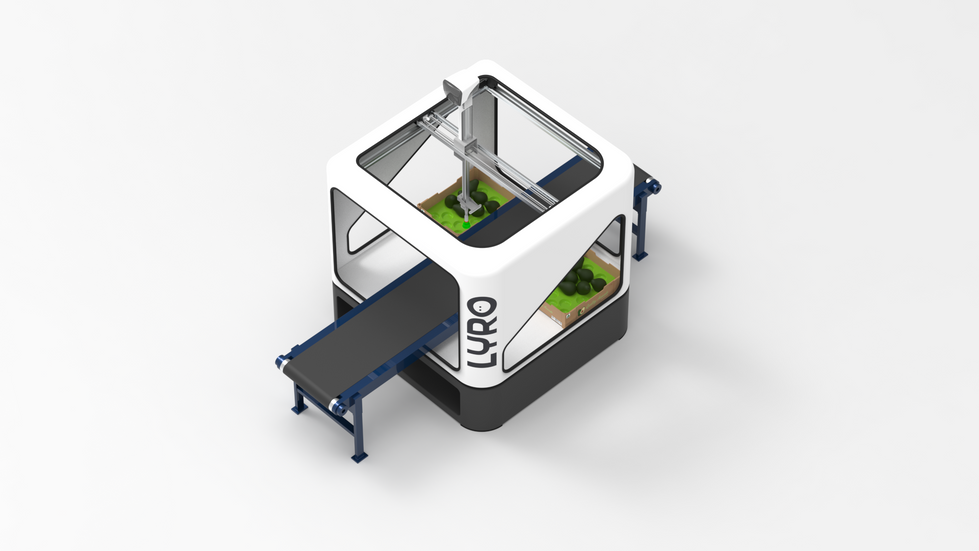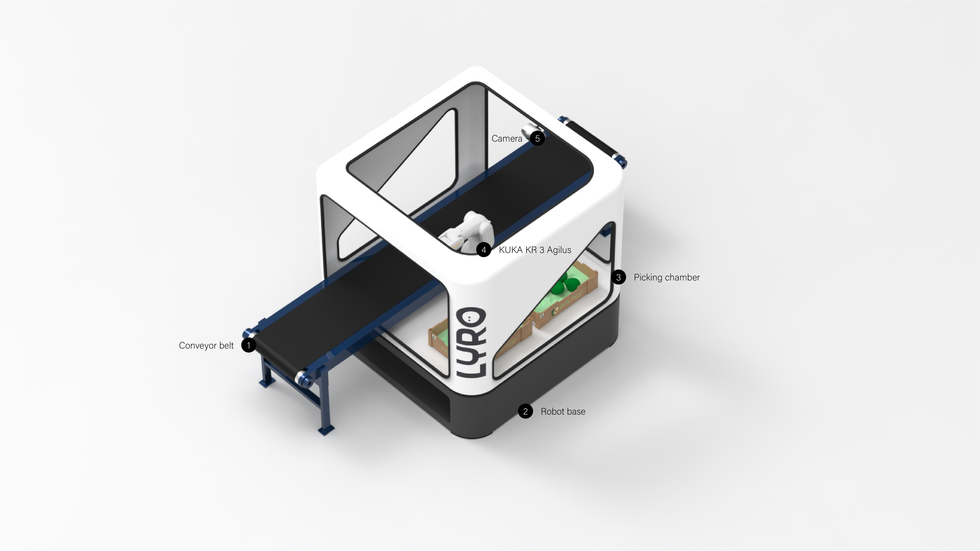Packing robot
Team: Khoa Tran (individual)
Year: 2020
Keywords: robotics, pattern packing, agriculture, eCommerce

The problem
Help LYRO Robotics, a promising deep-tech Australian start-up based in Brisbane, commercialise its smart robot prototype and establish its position on the market.

The outcome
A new modern housing for LYRO's intelligent fresh produce pattern-packing robotic system.

The impact
The new housing not only helps convey LYRO's vision and philosophy but also establishes the company's long-term goals of integrating its research-driven advanced robotic picking and packing solution into other areas such as retail and e-Commerce.

RESEARCH

Artificial intelligence is growing rapidly and the power of smart robots is being harnessed in various areas such as healthcare, agriculture, and manufacturing. LYRO seeks to utilise machine intelligence to improve efficiency and productivity by freeing people from undergoing dangerous, dirty, and dull tasks and ensuring a robust, safe, and secure supply chain.

USER GROUP



Packhouse workers
Need a way to escape from dull or dangerous tasks while maintaining a sense of job security.



Packhouse owners
Need an efficient approach to packing fresh produce during labour shortage.

FEATURES
Configuration 1: XY plotter
This configuration utilises the mathematical principle of cartesian plane to identify, pick, and relocate items with a high level of precision.
Configuration 2: Franka Emika Panda
This configuration utilises the Franka Emika Panda robot arm manufactured by LYRO's global partner from Germany, Franka Emika.
Configuration 3: KUKA KR 3 Agilus
This configuration utilises the KR 3 Agilus robot arm manufactured by LYRO's global partner from China, KUKA.

SEQUENCE OF USE
As this project contributes to forming a new product line, I have used speculative design to envision LYRO robotic system within several scenarios. This is an effective way to visually encapsulate the company's vision and communicate my design language.

Scenario 1: Pack house - single robot with sorting system
After the robot has finished picking items from a tote box to a shipping box, the blue conveyor belt is programmed to divert the next full tote box to the robot's chamber.

Scenario 3: Packhouse - single robot and feeder system
The items from the feeder system are diverted directly to the robot's chamber to be placed into shipping boxes.

Scenario 2: eCommerce fulfilment centre - single robot
Full tote boxes are diverted to the robot's chamber and the items are transferred from these boxes to shipping boxes.

Scenario 4: eCommerce fulfilment centre - robot fleet
Full tote boxes are diverted to the robot's chamber and the items are transferred from these boxes to shipping boxes.

DEVELOPMENT
Design development
This process involves various types of sketches including styling sketches, final design sketches, and feature design sketches.

PROTOTYPE
Prototype teaser
After the internship has concluded, I have passed the design to the engineering team at LYRO. As a result, LYRO's state-of-the-art technology has been successfully encapsulated in a brand new housing.









































